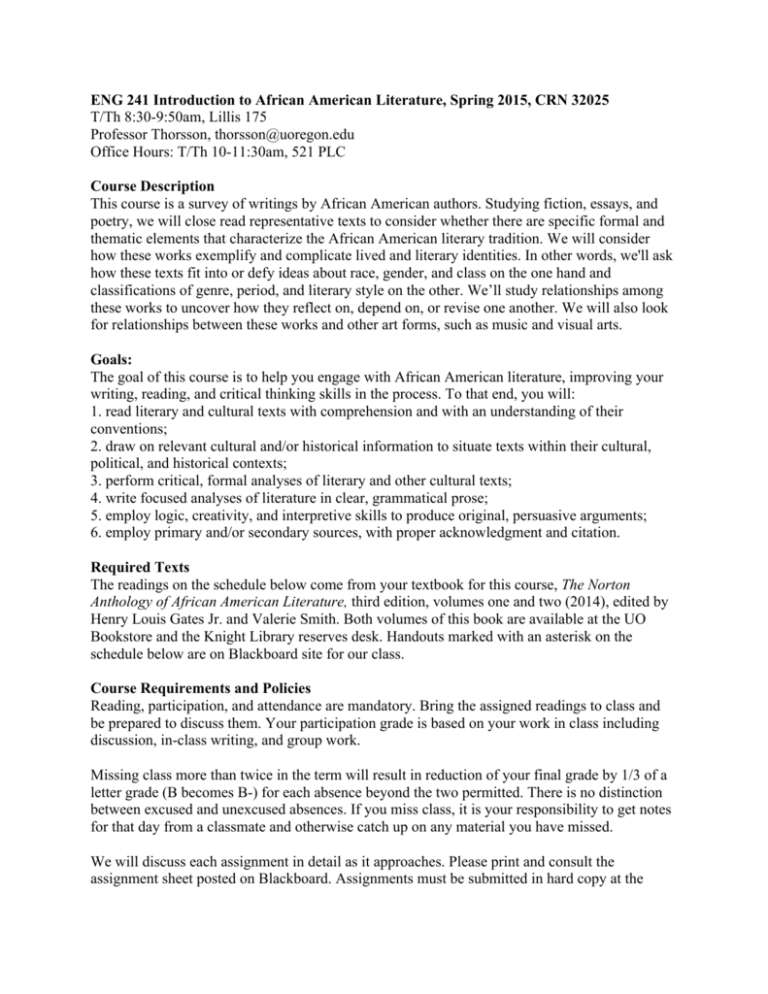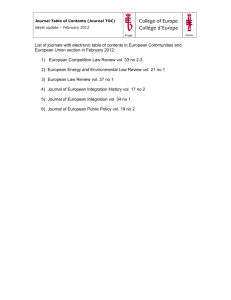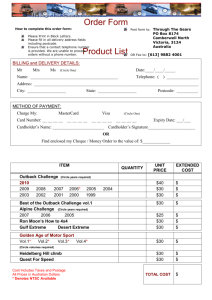
ENG 241 Introduction to African American Literature, Spring 2015, CRN 32025
T/Th 8:30-9:50am, Lillis 175
Professor Thorsson, thorsson@uoregon.edu
Office Hours: T/Th 10-11:30am, 521 PLC
Course Description
This course is a survey of writings by African American authors. Studying fiction, essays, and
poetry, we will close read representative texts to consider whether there are specific formal and
thematic elements that characterize the African American literary tradition. We will consider
how these works exemplify and complicate lived and literary identities. In other words, we'll ask
how these texts fit into or defy ideas about race, gender, and class on the one hand and
classifications of genre, period, and literary style on the other. We’ll study relationships among
these works to uncover how they reflect on, depend on, or revise one another. We will also look
for relationships between these works and other art forms, such as music and visual arts.
Goals:
The goal of this course is to help you engage with African American literature, improving your
writing, reading, and critical thinking skills in the process. To that end, you will:
1. read literary and cultural texts with comprehension and with an understanding of their
conventions;
2. draw on relevant cultural and/or historical information to situate texts within their cultural,
political, and historical contexts;
3. perform critical, formal analyses of literary and other cultural texts;
4. write focused analyses of literature in clear, grammatical prose;
5. employ logic, creativity, and interpretive skills to produce original, persuasive arguments;
6. employ primary and/or secondary sources, with proper acknowledgment and citation.
Required Texts
The readings on the schedule below come from your textbook for this course, The Norton
Anthology of African American Literature, third edition, volumes one and two (2014), edited by
Henry Louis Gates Jr. and Valerie Smith. Both volumes of this book are available at the UO
Bookstore and the Knight Library reserves desk. Handouts marked with an asterisk on the
schedule below are on Blackboard site for our class.
Course Requirements and Policies
Reading, participation, and attendance are mandatory. Bring the assigned readings to class and
be prepared to discuss them. Your participation grade is based on your work in class including
discussion, in-class writing, and group work.
Missing class more than twice in the term will result in reduction of your final grade by 1/3 of a
letter grade (B becomes B-) for each absence beyond the two permitted. There is no distinction
between excused and unexcused absences. If you miss class, it is your responsibility to get notes
for that day from a classmate and otherwise catch up on any material you have missed.
We will discuss each assignment in detail as it approaches. Please print and consult the
assignment sheet posted on Blackboard. Assignments must be submitted in hard copy at the
beginning of class on the due dates listed below and formatted according to current MLA
guidelines, including 1 inch margins, single-side printed, stapled, correct citation and quotation,
and a works cited page. Consult the MLA Handbook if you are uncertain of correct format. I will
mark late assignments down by 1/3 of a letter grade (B becomes a B-) for each day they are late.
I will not accept late assignments more than one week after the due date.
If you anticipate needing accommodations in this course, please meet with me soon. Please
request that the Accessible Education Center (http://aec.uoregon.edu/) send me a letter outlining
your approved accommodations.
The University Student Conduct Code (see conduct.uoregon.edu) defines academic
misconduct. Students may not commit or attempting to commit any act that constitutes academic
misconduct. Students should acknowledge and document all sources of information. If there is
any question about whether an act constitutes academic misconduct, see me.
UO is committed to providing an environment free of all forms of discrimination and sexual
harassment, including sexual assault, domestic and dating violence and gender-based stalking. If
you (or someone you know) has experienced or experiences gender-based violence (intimate
partner violence, attempted or completed sexual assault, harassment, coercion, stalking, etc.),
know that you are not alone. UO has staff members trained to support survivors in navigating
campus life, accessing health and counseling services, providing academic and housing
accommodations, helping with legal protective orders, and more.
Please be aware that all UO employees are required reporters. This means that if you tell me
about a situation involving harassment, bias, or assault, I may have to report the information to
my supervisor or the Office of Affirmative Action and Equal Opportunity. Although I have to
report the situation, you will still have options about how your case will be handled, including
whether or not you wish to pursue a formal complaint. Our goal is to make sure you are aware of
the range of options available to you and have access to the resources you need. If you wish to
speak to someone confidentially, you can call 541-346-SAFE, UO’s 24-hour hotline, to be
connected to a confidential counselor to discuss your options. You can also visit the SAFE
website at safe.uoregon.edu.
In this class, we are studying literature of the United States in its historical and political contexts.
This means that we will read about and discuss racial and sexual violence. There are incidents of
both in our readings, some of which include explicit language and graphic sexual acts, both
consensual and not. If you wish to select another class to take instead of this one, I will be happy
to meet with you in office hours to help you select a suitable course.
Grading:
Participation
Close Reading #1 (2-3 pages)
Midterm Exam
Close Reading #2 (4-5 pages)
Event Response
Final Exam
10%
15%
20%
25%
10%
20%
Week One
T 3/31
Th 4/2
Week Two
T 4/7
Th 4/9
Introduction
Phillis Wheatley, “On Being Brought from Africa to America” (1773) (Volume 1,
p 143-144)
Syllabus*
Frederick Douglass, Narrative of the Life of Frederick Douglass, A Slave, Written
by Himself (1845) (Vol 1, p 330-362)
Assignment Sheet*
Douglass, Narrative (Vol 1, p 362-393)
Close Reading Handout*
Ida B. Wells Barnett, from A Red Record (1895) (Vol 1, p 670-679)
Week Three
T 4/14
Charles Chesnutt, "The Goophered Grapevine" (1899) and "Dave's Neckliss"
(1899) (Vol 1, p 582-591, p 610-618)
Passive Voice Handout*
Th 4/16
Week Four
T 4/21
Th 4/23
Frances Harper, all poems (1853-1900) (Vol 1, p 448-459)
Meter Handout*
Close Reading #1 Due (2-3 pages)
Booker T. Washington, “Chapter XI: The Atlanta Exposition Address,” from Up
from Slavery (1901) (Vol 1, p 572-579)
W.E.B. Du Bois, "The Forethought," "Of Our Spiritual Strivings," and "Of Mr.
Booker T. Washington and Others" from The Souls of Black Folk (1903) (Vol 1, p
687-702)
Week Five
T 4/28
Paul Laurence Dunbar, all poems (1893-1903) (Vol 1, p 896- 915)
Th 4/30
Midterm Exam
Week Six
T 5/5
Nella Larsen, Passing (1929) (Vol 1, p 1080-1110)
Th 5/7
Nella Larsen, Passing (1929) (Vol 1, p 1080-1110)
Close Reading #2 Due (4-5 pages)
Week Seven
T 5/12
Langston Hughes, all poems and "The Negro Artist and the Racial Mountain"
(1921-1949) (Vol 1, p 1304-1324)
Th 5/14
Langston Hughes, all poems and "The Negro Artist and the Racial Mountain"
(1921-1949) (Vol 1, p 1304-1324) (continued)
Week Eight
T 5/19
Richard Wright, "Blueprint for Negro Writing" (1937) (Vol 2, p 125-132)
Ralph Ellison, "Change the Joke and Slip the Yoke" (1958) (Vol 2, p 279-287)
Th 5/21
Week Nine
T 5/26
Th 5/28
Gwendolyn Brooks, all poems (1945-1960) (Vol 2, p 326-343)
Larry Neal, from "The Black Arts Movement" (1968) (Vol 2, p 784-787)
Amiri Baraka, "Black Art" (1969) (Vol 2, p 703-704)
Sonia Sanchez, all poems (1969) (Vol 2, p 711-713)
Jayne Cortez, “How Long Has Trane Been Gone?”(1969) (Vol 2, p 771-773)
Toni Morrison, Sula (1973) (Vol 2, p 989-1027)
Event Response Due (2 pages)
Week Ten
T 6/2
Toni Morrison, Sula (1973) (Vol 2, p 1027-1067)
Th 6/4
Final Exam






